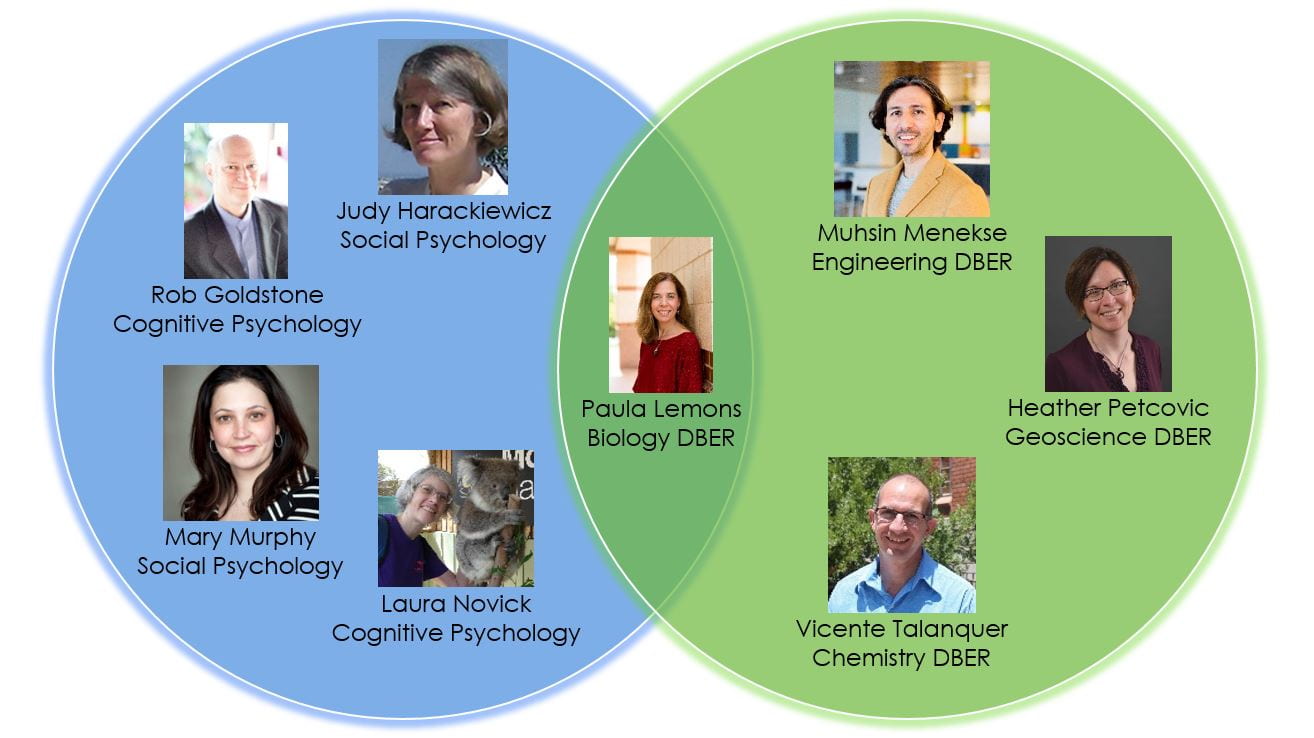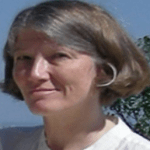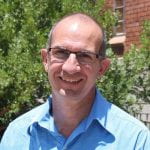
 Title: Learning as hacking our own mind
Title: Learning as hacking our own mind
Robert Goldstone is Distinguished Professor in the Psychological and Brain Sciences department and Cognitive Science program at Indiana University. His research interests include concept learning and representation, perceptual learning, educational applications of cognitive science, decision making, collective behavior, and computational modeling of human cognition. He won the 2000 APA Distinguished Scientific Award for Early Career Contribution to Psychology, and a 2004 Troland research award from the National Academy of Sciences. He was the executive editor of Cognitive Science from 2001-2005, Director of the Indiana University Cognitive Science Program from 2006-2011, and is the Current Editor of Current Directions in Psychological Science. He has been elected as a fellow of the Society of Experimental Psychologists, the Cognitive Science Society, and the American Academy of Arts and Sciences.
 Title: Promoting Motivation and Performance in Gateway STEM Classes with Value Interventions
Title: Promoting Motivation and Performance in Gateway STEM Classes with Value Interventions
Judy Harackiewicz is the Paul Pintrich Professor of Psychology at the University of Wisconsin-Madison. She received her PhD from Harvard University in 1980. Her research focuses on human motivation, specifically intrinsic motivation, interest and achievement motivation. She studies how different kinds of performance evaluation and feedback influence an individual’s intrinsic interest in an activity. She also studies motivational issues in educational psychology, particularly how goals affect the development of interest in academic subjects.
 Title: Supporting Biochemistry Students’ Conceptual Development and Problem Solving through Research at the Intersection of Theory and Practice
Title: Supporting Biochemistry Students’ Conceptual Development and Problem Solving through Research at the Intersection of Theory and Practice
Paula Lemons is a Professor of Biochemistry and Molecular Biology at the University of Georgia (UGA). She has a PhD in biochemistry from the University of Kentucky and completed postdoctoral work at Duke University in the Department of Biology. Paula became an Assistant Professor at the UGA in 2009. During her time at Georgia, Paula has developed a vibrant discipline-based education research group funded by multiple grants from the National Science Foundation. Her group investigates biochemistry learning, focusing on learning and instruction about noncovalent interactions and metabolic pathway dynamics. She collaborates with psychologists to determine how general principles on learning apply to biochemistry learning and vice versa. Paula’s group also investigates the thinking and practices of college biology instructors who engage in professional development, seeking to determine better ways to support their use of evidence-based educational practices. Paula’s work has been published in Biochemistry and Molecular Biology Education, CBE-Life Sciences Education, BioScience, and the Journal of Computer Assisted Learning. She teaches Introductory Biochemistry for science and engineering majors. Paula promotes discipline-based education research and its applications through her leadership of the Scientists Engaged in Education Research Center and the Department and Leadership Teams for Action institutional transformation project, both at UGA.
 Title: The Reflection-Informed Learning and Instruction: Improving Undergraduate STEM Education by Integrating Natural Language Processing with Mobile Technologies
Title: The Reflection-Informed Learning and Instruction: Improving Undergraduate STEM Education by Integrating Natural Language Processing with Mobile Technologies
Muhsin Menekse is an Associate Professor at Purdue University with a joint appointment in the School of Engineering Education and the Department of Curriculum & Instruction. Dr. Menekse’s primary research focus is on exploring K-16 students’ engagement and learning of engineering and science concepts by creating innovative instructional resources and conducting interdisciplinary quasi-experimental studies in and out of classroom environments. Dr. Menekse is the recipient of the 2014 William Elgin Wickenden Award by the American Society for Engineering Education. Dr. Menekse also received three Seed-for-Success Awards (in 2017, 2018, and 2019) from Purdue University’s Excellence in Research Awards programs in recognition of obtaining three external grants of $1 million or more during each year. His research has been generously funded by grants from the Institute of Education Sciences (IES), Purdue Research Foundation (PRF), and National Science Foundation (NSF).
 Title: Growth Mindset Cultures Support Diversity, Persistence, and Performance in STEM
Title: Growth Mindset Cultures Support Diversity, Persistence, and Performance in STEM
Dr. Mary Murphy is the Herman B. Wells Professor of Psychological and Brain Sciences at Indiana University. In the realm of education, her research illuminates the situational cues—like faculty and institutional mindset—that influence students’ academic motivation and achievement with an emphasis on understanding when those processes are similar and different for structurally advantaged and disadvantaged students. She develops, implements, and evaluates social psychological interventions that reduce identity threat and spur students’ motivation, persistence, and performance. Mary is a co-founder of the College Transition Collaborative, a research-practice partnership aimed to increase student success through social psychological interventions. In the realm of organizations and tech, her research examines barriers and solutions for increasing gender and racial diversity in STEM fields. In particular, she examines the role of organizational mindset in companies’ organizational culture, employee engagement and performance, and diversity, equity, and inclusion. Mary earned a B.A. from the University of Texas at Austin and a PhD from Stanford University. She completed a NSF postdoctoral fellowship at Northwestern University. In 2012, she joined the faculty of Indiana University and, in 2013, was named a Rising Star by the Association for Psychological Science (APS). In 2019, she was awarded the Presidential Early Career Award for Scientists and Engineers (PECASE)—the highest honor bestowed on early career scientists by the United States Government. She is the recipient of over $8 million in federal and foundation grants including a recent $2.2 million NSF CAREER award for her research on strategies to improve diversity in STEM. Her research has been profiled in The New York Times, Forbes, Harvard Business Review, Scientific American, and NPR, among other outlets. Mary’s new book on organizational mindset, Cultures of Growth, is set to be published by Simon & Schuster in early 2022.
 Title: Using cognitive/perceptual psychology to improve students’ understanding of evolutionary trees
Title: Using cognitive/perceptual psychology to improve students’ understanding of evolutionary trees
Laura R. Novick earned a B.S in psychology from The University of Iowa and a Ph.D. in cognitive psychology from Stanford University. She is on the faculty at Vanderbilt University in the Department of Psychology and Human Development and is a Fellow of both the Association for Psychological Science and the Psychonomic Society. She is a co-author of the book, Discipline-based education research: Understanding and improving learning in undergraduate science and engineering, that resulted from her participation on the NRC Consensus Committee on the Status, Contributions, and Future Directions of Discipline-Based Education Research. She is a former Associate Editor of the Journal of Experimental Psychology: Learning, Memory, and Cognition and has served on the advisory boards for several funded projects focused on using psychological principles to improve K-12 and undergraduate education in STEM disciplines. Early in her academic career, Laura investigated basic research questions in areas such as analogical problem solving, expertise, and diagrammatic reasoning. For the past 15 years or so, her research, conducted in collaboration with evolutionary biologists, has focused on issues at the interface of cognitive psychology and biology education, particularly with regard to students’ understanding of evolutionary trees and their misconceptions concerning evolutionary relationships among familiar taxa. This research has led to changes in how tree-of-life diagrams are depicted in biology textbooks. Laura has also collaborated with museum educators to make recommendations for improving tree-of-life exhibits in science museums.
 Title: Rock, Weather, Water: Spatial Thinking in Novice to Expert Problem-Solving across the Geosciences
Title: Rock, Weather, Water: Spatial Thinking in Novice to Expert Problem-Solving across the Geosciences
Heather Petcovic is a Professor of Earth Science Education, holding a joint appointment between the Department of Geological and Environmental Sciences and the Mallinson Institute for Science Education at Western Michigan University. Dr. Petcovic’s research broadly focuses on field-based (outdoor) education and practice in the geosciences. She is particularly interested in how novices to experts use navigation and spatial thinking skills in field-based geologic problem-solving. Dr. Petcovic is also active in the preparation and professional development of K-12 earth science teachers. She is a current Associate Editor and the past Curriculum and Instruction Editor for the Journal of Geoscience Education, and a former member of leadership teams with the Teacher Education Division of the National Association of Geoscience Teachers and the Geoscience Education Division of the Geological Society of America. She currently serves as Associate Dean with the College of Arts and Sciences at WMU.
 Title: Exploring and fostering student reasoning
Title: Exploring and fostering student reasoning
Vicente Talanquer is a University Distinguished Professor in the Department of Chemistry and Biochemistry at the UA. His research focuses on undergraduate chemistry education. He has published over 125 peer reviewed and invited papers where he has explored the conceptual difficulties that students face when learning chemistry and the effect of different teaching strategies on student understanding. He has also investigated prospective science teachers’ reasoning and practices. Dr. Talanquer has applied the results of his educational research to the development of innovative curricula for undergraduate chemistry education. Dr. Talanquer has received various awards during his academic career, including the James Flack Norris Award for Outstanding Achievement in the Teaching of Chemistry by American Chemical Society, and the Educational Research Award by the Council of Scientific Society Presidents. In 2015, he was named Arizona Professor of the Year by the Carnegie Foundation.